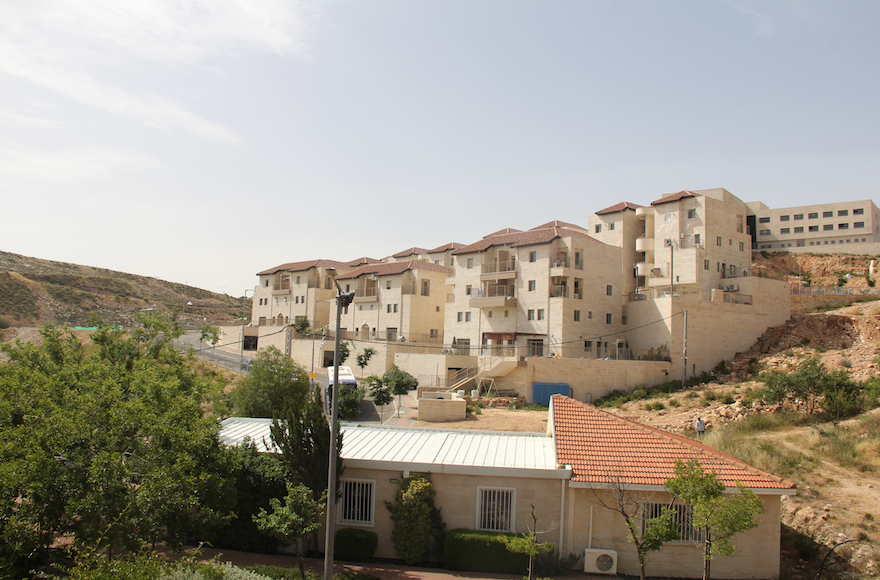 Photo from Wikimedia Commons.
Photo from Wikimedia Commons. The novel coronavirus has quickly transformed many aspects of life, including the ability to earn a living. In Israel, approximately a quarter of the workforce is now unemployed, with effects rippling across the economy. Perhaps nowhere is this felt more than in the Jewish state’s real estate market, a sector that is heavily reliant on human interaction.
“Business has slowed down significantly; we’re under guidelines from the Health Ministry not to go more than 100 meters from our homes [except to buy food, obtain medical care and the like], so I’m not showing properties, and people from abroad who were going to come to the country to look at or buy apartments, they can’t travel here,” Yehoshua Brooks, owner and a broker at American Boutique Realty in Tel Aviv, told The Media Line. “Real estate is a business in which you are constantly meeting people.”
Shelly Levine, owner of the Tivuch Shelly real estate brokerage that serves the Jerusalem area, has also seen work grind to a halt.
“The whole real estate market isn’t working because nothing is working,” she told The Media Line. “Real estate is very much connected to what goes on in the world, and [when] the world is in a terrible place, real estate is in a terrible place.

“Especially with real estate, people are not going to make major economic decisions when the world is in this position,” she continued. “It’s like the world is in a stopgap [status].”
Levine said her main priority now is ensuring her employees can put food on their tables.
“For me, the important thing is to make sure that I find the money over the next couple of months to pay my workers, who have worked for me for years,” she said. “It’s impossible to sell houses at the moment. Who can even get a mortgage at this point? My challenge is to take care of my workers.”
With no revenue coming in, her plan is to use the money she has invested in her company to make the payroll, after which she hopes the government will step in and help.
Last week, Israeli Prime Minister Binyamin Netanyahu and Finance Minister Moshe Kahlon announced a $22.3 billion economic stimulus plan for the next several months to include assistance for small and medium-sized businesses in the form of reduced taxes, loans, and cash grants.
With many Israelis out of work, paying the mortgage or making the rent has become more difficult. However, homeowners are generally in a better position than renters when it comes to renegotiating payment.
“Banks have the ability to postpone the mortgage for at least three months and almost every bank in Israel is doing so,” Anastasia Fux, an attorney who specializes in real estate, told The Media Line.
In addition, she said fewer evictions are being carried out because courts are closed.

“There is no possibility to file a claim for eviction, so I don’t believe there is a lot going on at the moment. There may be [more evictions] after this is over but not now,” she said.
Leases are a different story, and Fux said that there is a lot of confusion over what and what is not applicable in rental agreements. However, business leases are more flexible than individual rental agreements, she said.
“From the commercial standpoint with commercial rent agreements, I think there are a lot of cases of postponing the rent, but for residential [renters], I don’t,” she said.
Shalom Or is one such person who finds himself in a tricky situation with his lease. Together with his wife, he runs a yoga studio, and has two rentals: one for his business and one as his residence.
“In our particular case, our landlord [for the yoga rental] is great if we give three months’ notice [to leave the apartment early]. In the other one, the landlord is fine [with us leaving early] if we can find [substitute] renters,” he told The Media Line. “We’ve posted everywhere: Facebook, Janglo and [other real estate listing sites]. We’ve had one bite so far, and obviously that not’s great, especially when our business has collapsed because we can’t run a yoga studio because of the virus.”
While he understand the landlord’s position, Or said that Israeli renters are in a particularly vulnerable spot without the widespread use of “force majeur” clauses in leases. Force majeur (“superior force”) clauses, more prevalent in other Westernized countries, free people from liability or obligation (or in some cases suspends them) if there is a major unforeseen circumstance that is out of their control.
“Every lease [here] is different. Some leases have a force majeur clause, and they’re super protected,” Or said. “From what I see now … Israel doesn’t have these laws on the books, and if they are, they’re not very clear. For the most part, if it doesn’t specify in your lease that you can get out with a force majeur clause, then you’re screwed.”

He wishes the government would do more to help Israelis without them having to face bureaucratic obstacles, citing the US plan to issue almost every person over 18 a $1,200 check.
“People are going to have to choose between violating the laws of interaction and social distancing [if they move because they can’t pay their rent] and losing thousands of dollars. It may even come to a point where people have to choose between paying their rent or buying their food or going into the red in their accounts,” Or said.
Some renters, like Ben, 29, who works in high-tech, have benefited from the coronavirus’s impact on the rental market, where there are more apartments available because people have left unaffordable apartments and others normally used for Airbnb travelers have been put on the market.
“This hasn’t deterred me; the opposite is the case,” he told The Media Line. “It’s given me more opportunities I think, less competition, greater selection and greater negotiating power.”
Still, the future of the real estate market remains murky.
Brooks said, “It’s a little bit too early to say if it’s a buyer’s market. As people lose their income, lose their jobs, their businesses go under, I see that affecting the market. I haven’t seen any data on the volume of sales now as opposed to before the pandemic, but I expect it to fall.
“After this is over, the economic situation in Israel will be much tougher. Maybe peoples’ savings ran out, maybe the money they were going to use for a down payment, they’ve burned through it or they need to rely on it because they lost their jobs,” Brooks added. “I don’t have a crystal ball for the prices of houses, but I see things slowing down. I think that we will be in recession or maybe a depression.”

Liora Ben Ari, a real estate expert, sees the current slowdown as part of the ebb and flow of the sector. However, she believes that the market will recover in a few months.
“I’m just waiting for a ‘wave,’ which is what I call it, among the many waves [of business activity] during a decade in this industry and I feel that we just need to stay calm, believe in the service that we give, and everything will come back to normal very soon,” Ben Ari said.
Levine believes the pandemic could have a positive effect on business down the road.
“Maybe it will be better for us because people could think brick and mortar are a much better investment than the stock market, which has taken a terrible dive,” she said.





















 More news and opinions than at a Shabbat dinner, right in your inbox.
More news and opinions than at a Shabbat dinner, right in your inbox.